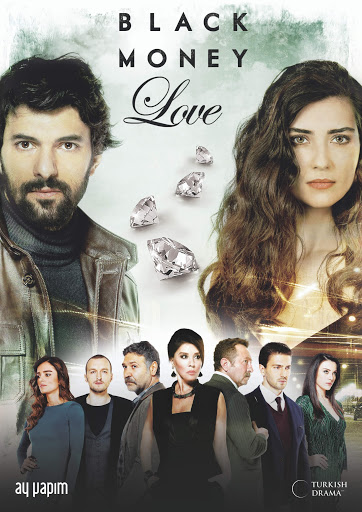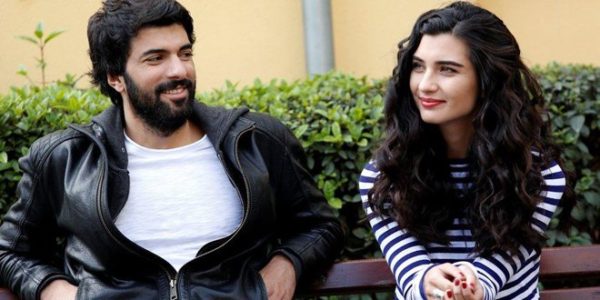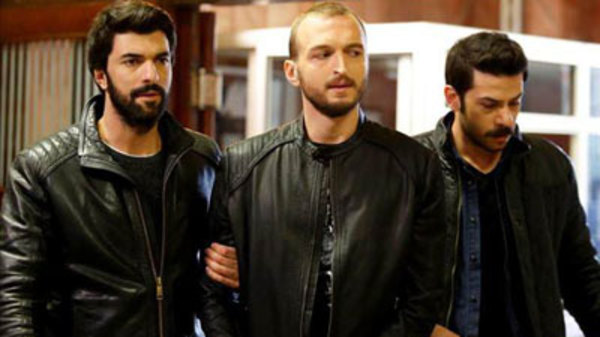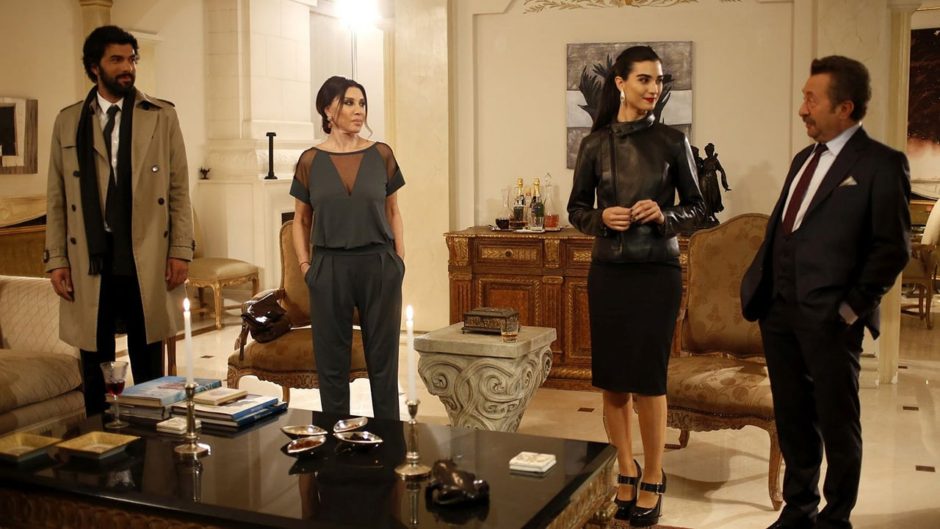A self-contained universe vanished into cyber space after the last segment of Black Money Love, a marathon Turkish soap opera broadcast on Netflix, ended on an upbeat, if unpredictable, note.

My wife and I watched all 164 episodes over a period of more than a month, fixated by the story line, the characters and the locales. Etti and I tuned in after lunch, sipping espresso coffee, and again after supper. We generally watched about five episodes a day.
It was not our first soap from Turkey, a country I have visited several times and enjoyed immensely. In the past year-and-a-half, we’ve seen, among others, The Girl I Loved, Intersection, Love is in the Air, Gonul and Winter Sun, all of which piqued our fancy.
Not being a fan of American day time soap operas, I confess that my weakness for Turkish soaps seems odd and inconsistent. All soaps, regardless of origin, highlight the joys and hazards of romantic attachments and the duplicitous nature of human beings. Turkish soaps, however, offer extra features — fairly exotic scenery, a preoccupation with Turkish cuisine, and a stirring musical score.
For Etti, another attraction was the Turkish language itself. Turkish reminds her of her childhood in Bulgaria and Israel. Etti was born in Bulgaria, a province of the Ottoman Empire until the late 19th century, and learned Bulgarian in Sofia. After moving to Israel in the early 1950s, she and her parents, Moritz and Rene, continued to speak Bulgarian at home in Jaffa.
Etti’s peppery grandmother, Zimbul, who died in the 1960s, sprinkled her Bulgarian with Turkish words and phrases. Etti fondly recalled Zimbul’s affinity for Turkish as she immersed herself in soaps from Turkey. I don’t share Etti’s national or linguistic background, but I empathized with her identification with Turkey’s cultural patrimony. According to Etti, many Israelis tune in to Turkish soaps.
Black Money Love, known in Turkish as Kara Para Ask, started inauspiciously, but gradually captured my imagination. It has all the vital ingredients of an alluring soap — a plausible script, superior production values, a rousing score, and stellar performances from the lead actors.
Its universal themes run the gamut from love and treachery to betrayal and redemption. Virtually every episode is suffused with contrasting emotions ranging from tenderness to violence, beauty to ugliness, and fear to hope.

The plot is fairly straightforward and sometimes quite pat, but it could be complex, subtle and convoluted, the stuff of high melodrama.
Omer Demir (Engin Akyurek), a dedicated and idealistic policeman from the eastern city of Van, is transferred to Istanbul, where he is reunited with his mother, Elvan (Guler Okten), and his older brother, Huseyin (Burak Tamdogan), also a cop. The Demirs are far from rich, but they’ve achieved a sort of middle-class status.
Omer meets Elif Denizer (Tuba Buyukustun), a beautiful and successful jewellery designer normally based in Rome, after her father, Ahmet (Aytac Atman), and Omer’s fiancé are found dead in the same car. Omer understands Elif’s grief completely. He’s still tormented by the murder of his father years ago, a still unsolved crime. With the passage of time, Omer and Elif establish a friendship that blooms into a romance. Their relationship is tempestuous and lies at the heart of Black Money Love.

Elif has two sisters — the high-strung Asli (Hazan Turesan), who’s unhappily married, and the vulnerable and impressionable Nilufer (Bestemsu Ozdemir), who’s single. They live with their high-society mother, Zerrin (Nebahat Cehre), in an elegant house overlooking the Bosphorus.

Smart, dogged and likeable, Omer arouses the enmity of a wealthy physician named Tayyar Dundar (Erkan Can) as he investigates the murder of his fiancé and Elif’s father. Dundar, a roly-poly figure with a bent for sarcasm and understatement, is powerful and respected. He owns several private hospitals, but on the side, he secretly launders money with the help of unwitting accomplices, illegally buys and sells human organs, and murders opponents.

Dundar’s two sons, Mert (Ali Yorenc), and Metin (Saygin Soysal), could not be more different. Metin, whose real name is Fatih, considers Tayyar his uncle, but in reality, Tayyar is his father. Metin/Fatih, whose biological mother was terribly abused by Tayyar, performs his dirty work with ruthless efficiency. Mert, mild-mannered and diffident, stays clear of his father’s business dealings.
Portraying himself as a benevolent figure close to the Denizer family, Tayyar is really their enemy. He’s an arch villain without scruples who works against their interests and orders Metin to kidnap Elif and Nilufer. In an unexpected development, Metin and Nilufer eventually fall in love.
Omer’s colleagues, Arda (Ahmet Tasanlar), Pelin (Ilkin Tüfekçi) and Ipek (Oyku Karayel), his ex-girlfriend, are squeaky clean cops on a force riddled with corruption. Their boss, Ali, is in Tayyar’s pocket, as is Omer’s brother, Huseyin, who outranks him in seniority and position. When Omer discovers the full extent of Huseyin’s foray into crime, he is flabbergasted and devastated.

Treachery, though, lurks in every corner of Black Money Love.
Bahar (Tuvana Turkay), supposedly Elif’s best friend, works relentlessly to undermine her. Cagey to the core, she uses her boyfriend, Levent (Emre Kizilirmak), to attain her unsavory objectives. Elif’s conniving aunt, Nedret (Isil Yucesoy), conceals an extremely dark past that has a direct bearing on her closest relatives.

Black Money Love usually moves along at a brisk pace, seamlessly connecting sub-plots and loose ends, but sometimes it falters, bogging down in a swamp of irrelevant and annoying details. But in general, Etti and I considered it time well spent on cold winter days and nights, when Istanbul was ablaze with intrigue, suspicion and passion and Omer, the quintessential honest cop, was hell-bent on delivering justice, whatever the cost.
